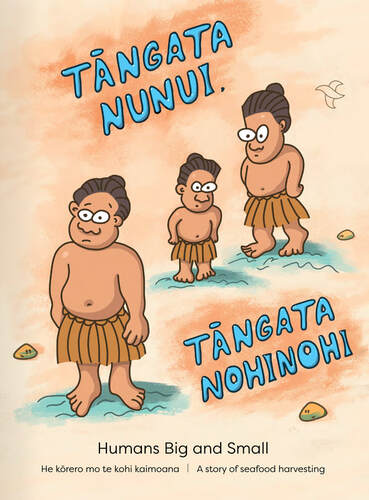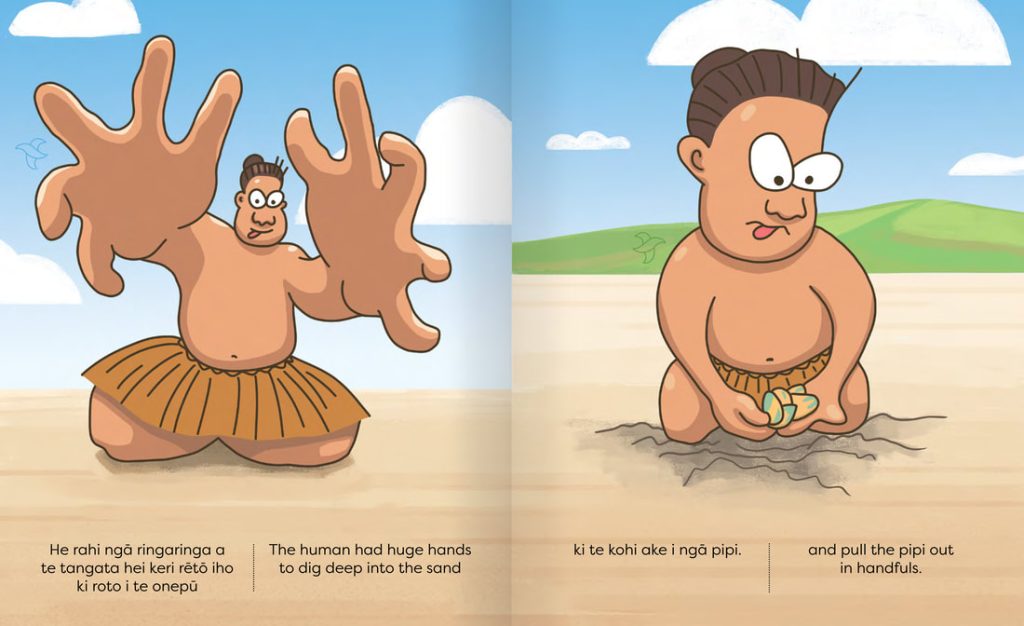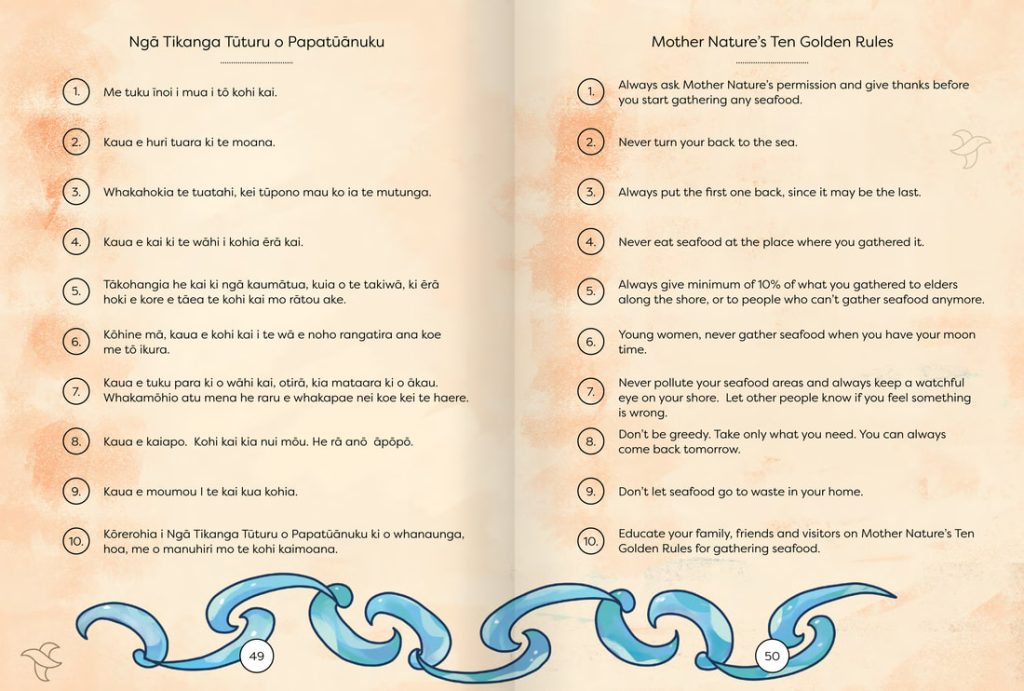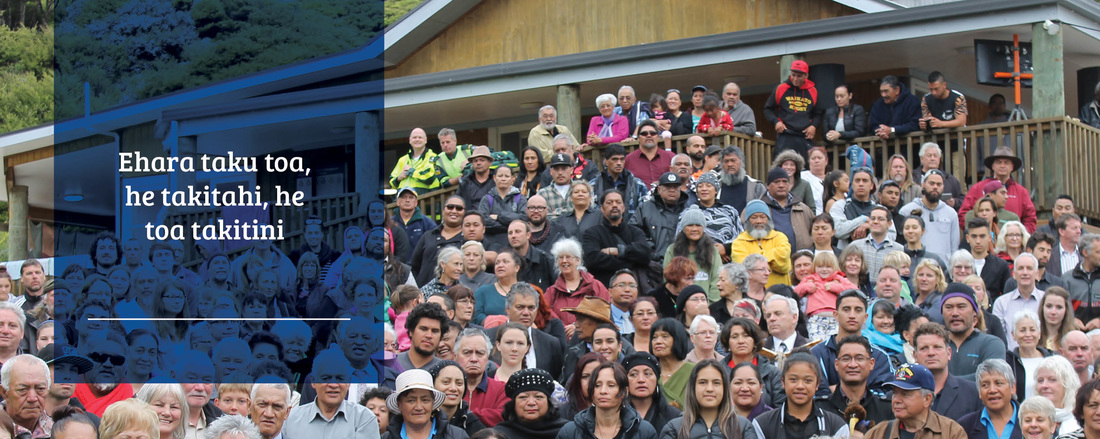
“Tāngata Nunui, Tāngata Nohinohi – Humans Big and Small” is a children’s book written by Howard Reti of Whangaruru.
It’s a book that has been written specifically to help educate children and their parents on kaimoana gathering in an environmentally and culturally friendly way.
Howard Reti spent many hours interviewing Ngātiwai kaumātua and undertook research in his community to understand more about the traditional ways of gathering kaimoana such like our tupuna (ancestors) did in years gone by, and how many of our people still practice this today.
So Howard decided he wanted to make a children’s book all about it!
It was always Howard’s vision to have a book written both in Māori and English, so he asked his Aunty Meri Barber to join his team to complete the translations into Te Reo Māori. Kawiti Waetford also assisted with translations.
Meri Barber said in her work in translating the book, “It was always important to me that Ngātiwai kupu and mita were prominent in my translation work. Some of the kupu may at times seem very simple, but these words are tuturu to Ngātiwai, and that was the most important thing.”

Howard says, “Dorothy and Tepara have done a great job in telling my story through their illustrations, and I think it is wonderful that we have people with their talent in Ngātiwai.”

“Through this process we learnt a lot more than just making this book. It is my hope that through this book the things we learnt can also get into the hearts and minds of our mokopuna and their parents.”
“The main kaupapa of the book is that we are all taught when we are young about the tikanga of going to collect pipi. When I went around interviewing people for my research for this book, in most cases they could remember three rules or tikanga when collecting pipi. But Howard found that there are lots of different tikanga around collecting pipi, and included ten of them in his book.

Howard calls these “Mother Nature’s Ten Golden Rules” for gathering kaimoana.
Howard says, “We are encouraging schools and communities to find out and understand what their tikanga is or Golden Rules for collecting kaimoana in their area, and I think through this we can all educate ourselves together.
“None of us had written a book before, and none of us had illustrated a book before. It was done by us in Ngātiwai, and we just had a go.”
“I would like to acknowledge the people of Ngātiwai and the Ngātiwai Trust Board. I would also like to acknowledge Dorothy Waetford, Tepara Jennings, Kawiti Waetford and my Aunty Meri Barber and all those who helped on this journey. I acknowledge the Ministry for Primary Industries for their support in my research into making this book.”
To purchase a copy of this fantastic book contact Howard Reti: humansbigandsmall@gmail.com


